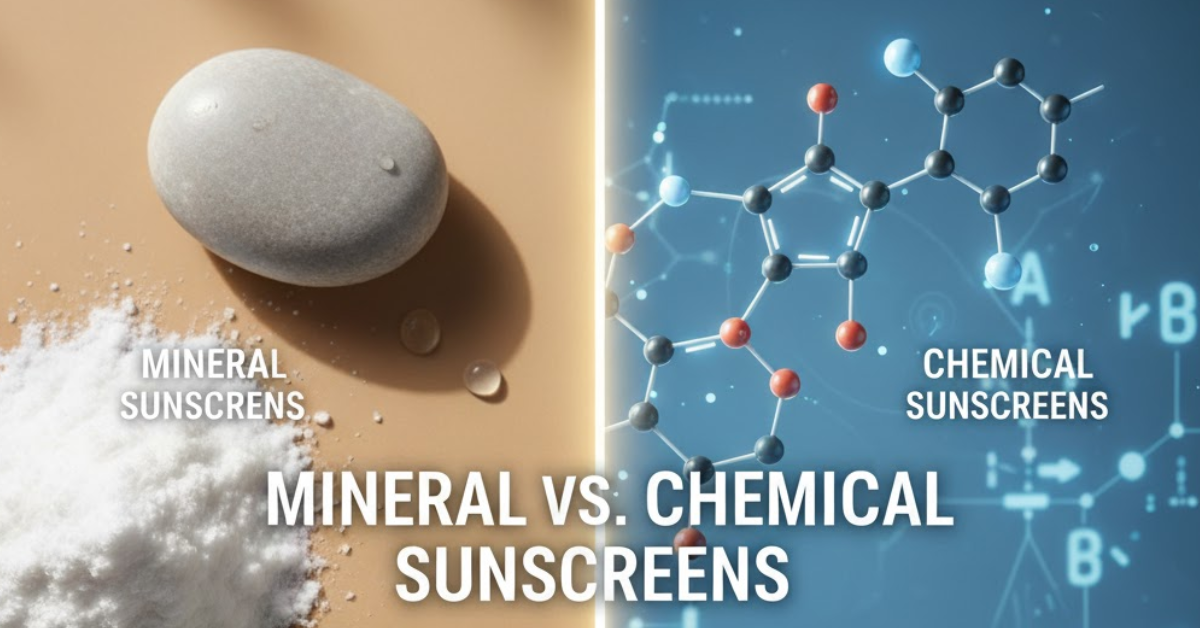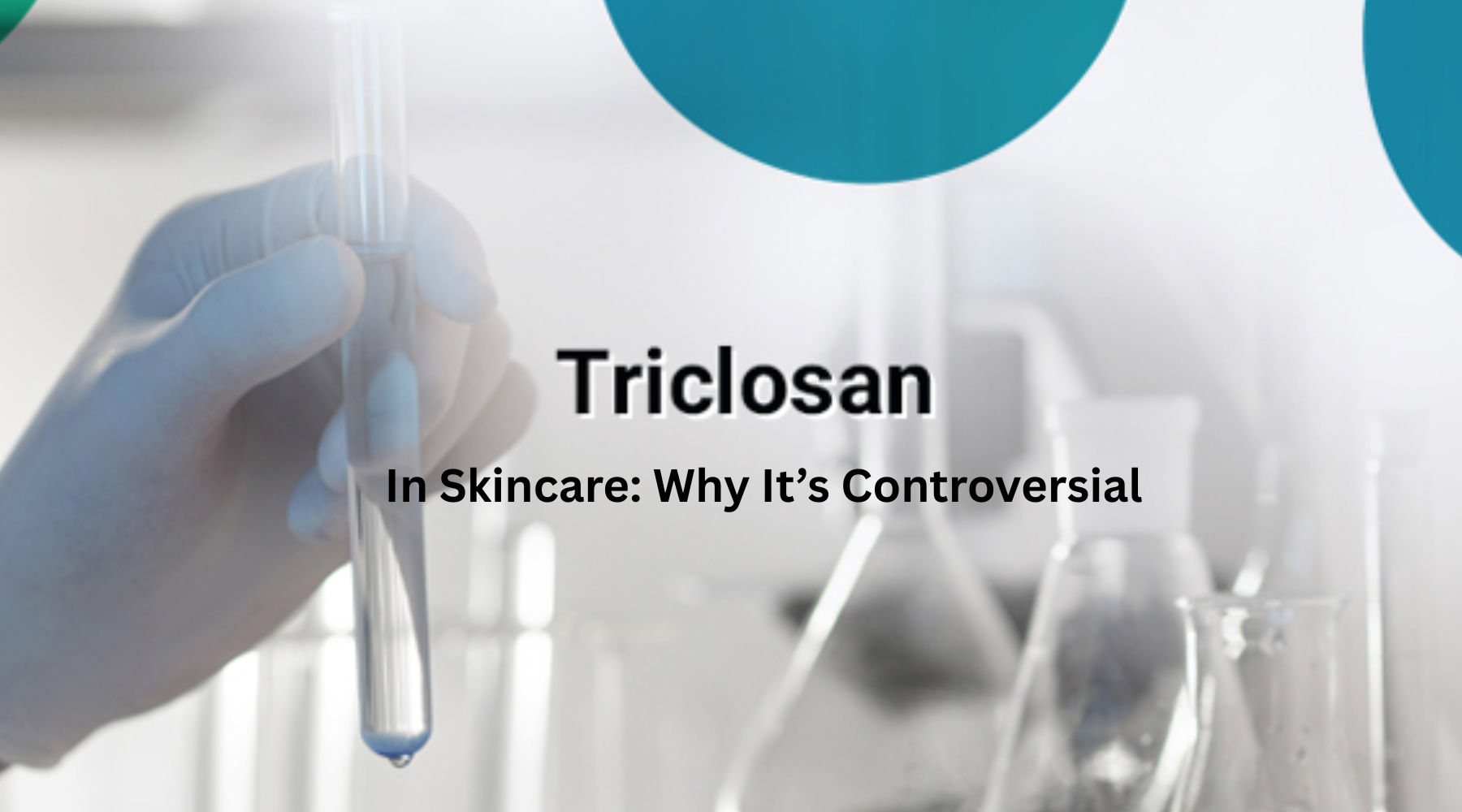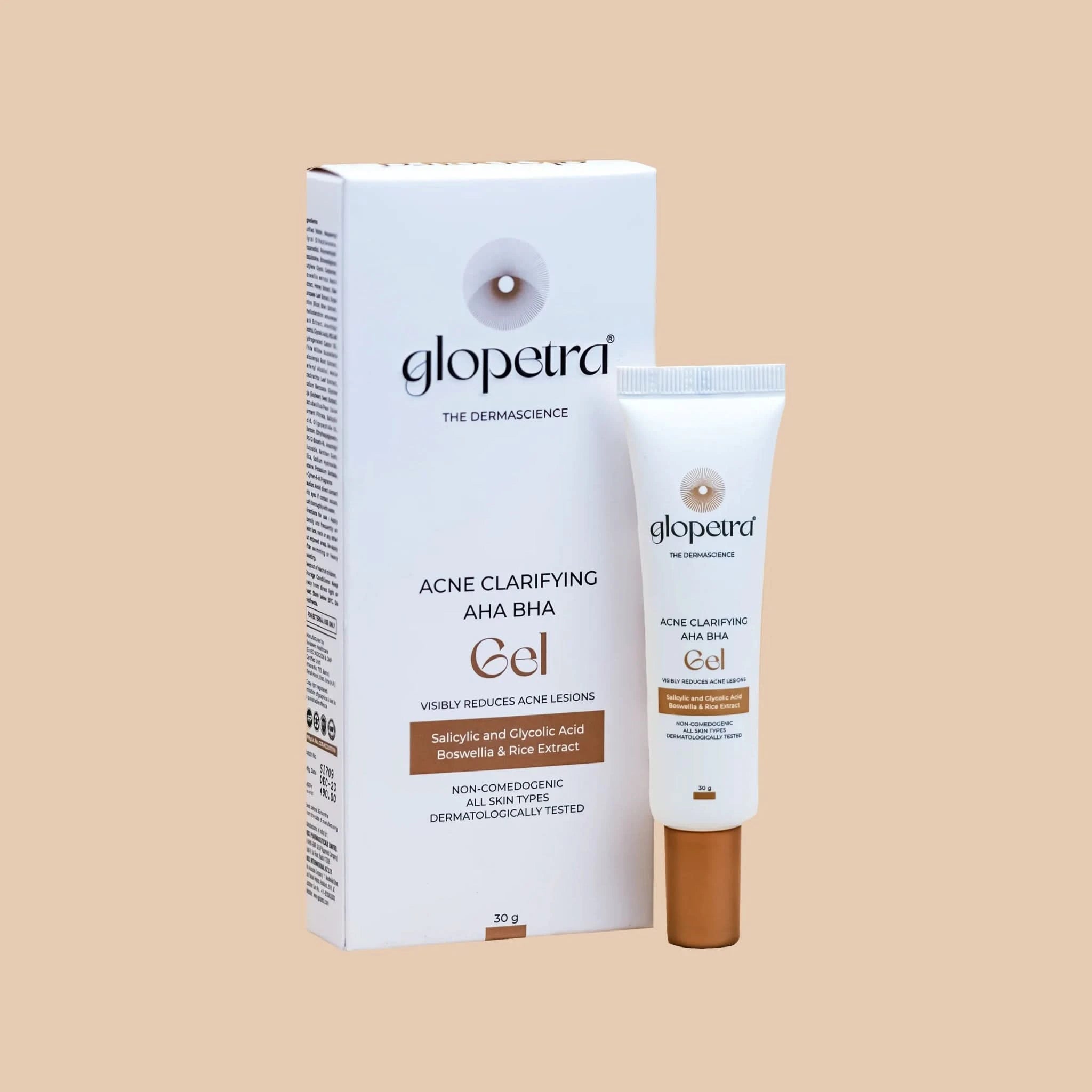
Vitamin C Serums: L-Ascorbic Acid vs. Sodium Ascorbyl Phosphate
Vitamin C Serums: L-Ascorbic Acid vs. Sodium Ascorbyl Phosphate - We know you are still in shock but yes, indeed, Vitamin C does not just have one type in skincare. It also has many types available. If you are planning to add Vitamin C to your skincare but wondering which type of Vitamin C is best, Glopetra has got you! In this post, we will talk about Vitamin C Serums: L-Ascorbic Acid vs. Sodium Ascorbyl Phosphate so that you can choose the right type of Vitamin C to get bright results. So keep going, skincare lovers!
In the rapidly evolving world of skincare, Vitamin C has gained insane popularity because of its bright and amazing results. It helps to reduce the signs of skin ageing, reduce hyperpigmentation, treat dead skin cells, and give clear and glowing skin. There are two leading derivatives of Vitamin C - L-Ascorbic Acid and Sodium Ascorbyl Phosphate which offer different benefits. In this detailed exploration, we will discuss the benefits and characteristics of each type so that you can make the right decision to enhance your skincare routine.
What is L-Ascorbic Acid
L-ascorbic acid is the purest form of Vitamin C. It is known for its wonderful results when applied to the skin. It helps to boost collagen production, brighten the skin and offer skin protection with its anti-oxidant properties.
Overall Benefits of L-Ascorbic Acid
Enlisting the range of benefits of L-Ascorbic Acid:
1. Anti-oxidant properties
L-ascorbic acid features remarkable anti-oxidant properties that help to deal with free radicals. It helps to safeguard the skin from oxidative stress caused by UV rays and pollution. It helps to prevent skin ageing and promote skin health.
2. Boost Collagen Production
L-ascorbic acid also plays a big role in stimulating collagen production and improving skin elasticity. Regular application of l-ascorbic acid helps to enhance the skin texture and gives you an even and glowing complexion.

3. Lightens hyperpigmentaion
According to studies, L-ascorbic acid also helps to decrease melanin production, lightens hyperpigmentation and leads to radiant skin tone.
4. Anti-inflammatory properties
L-ascorbic acid features anti-inflammatory properties that play a major role in calming skin irritation, and redness and promoting healthy skin.
5. Sun Protection:
When applied under sunscreen, L-ascorbic acid improves sun protection by balancing free radicals generated by UV radiation. It helps to protect the skin from sun damage and boosts skin health.
What is Sodium Ascorbyl Phosphate
Sodium Ascorbyl Phosphate also called SAP, is a water-soluble form of Vitamin C. It is made with a combination of ascorbic acid, salt and phosphate. When it is applied to the skin, it is converted into L-ascorbic acid with the help of enzymes. Their effectiveness can withstand over time, making them the finest choice for various skin care formulations.
Benefits of Sodium Ascorbyl Phosphate
Enlisting the benefits of Sodium Ascorbyl Phosphate
Antioxidant Protection
Like L-ascorbic acid, Sodium Ascorbyl Phosphate also contains anti-oxidant properties and helps to neutralize free radicals. It helps to protect the oxidative stress and prevent skin ageing symptoms.
Brightening benefits
According to studies, SAP contains brightening features that help to lighten hyperpigmentation, treat dark spots, and offer even-toned and glowing complexation.
Gentle
Sodium Ascorbyl Phosphate is known for its gentle functioning properties, So, if you have sensitve skin, you can choose SAP to get the desired results. Unlike L-ascorbic acid, it has a longer shelf-life.
Treats acne
According to research, SAP contains anti-microbial properties, making it a suitable formula to address acne issues. It helps to control excess oil production and prevents acne, making it a perfect option for acne-prone skin.
Vitamin C Serums: L-Ascorbic Acid vs. Sodium Ascorbyl Phosphate: Which is better for my skin?
No doubt, both L-Ascorbic Acid and Sodium Ascorbyl Phosphate offer amazing results, but it doesn’t mean they are suitable for skin types. L-ascorbic acid is less stable and is the purest form of Vitamin C. People with sensitive skin can feel irritation or redness with the application of L-ascorbic acid.

On the flip side, Sodium Ascorbyl Phosphate is stable and remains gentle on the skin. It can be used by sensitive skin types without the potential risk of irritation. Furthermore, it has anti-microbial properties, helps to prevent acne-causing bacteria, and is suitable for acne-prone skin.
Choose Glopetra’s Vitamin C Serum
Looking for the best Vitamin C serum? Look no further than Glopetra’s Vitamin C serum. Featuring Vitamin C, along with 24k gold dust, it truly works like magic on your skin. It helps to reduce skin blemishes, control sebum production, minimize enlarged pores and gives even-toned, luminous and healthy skin.

It does not contain any harsh chemicals and is suitable for all skin types. The best part? Dermatologists also suggest our serums to treat various skin concerns. Shop now!
Final Layer - "C" the Difference!
So that was the wrap of Vitamin C Serums: L-Ascorbic Acid vs. Sodium Ascorbyl Phosphate. The choice between these formulations depends on skin concerns and preferences. We hope that your battle between L-Ascorbic Acid and. Sodium Ascorbyl Phosphate is sorted now.
People May Also Ask For Vitamin C Serums: L-Ascorbic Acid vs. Sodium Ascorbyl Phosphate
Q1: What are the key differences between L-Ascorbic Acid and Sodium Ascorbyl Phosphate?
Ans: L-ascorbic acid is the purest form of Vitamin C, known for its antioxidant properties, collagen-boosting effects, and skin-brightening benefits. While Sodium Ascorbyl Phosphate is a stable, water-soluble form of Vitamin C. It offers similar anti-oxidant protection, and brightening effects, and is gentle on sensitive skin types.
Q2: Which form of Vitamin C is more suitable for sensitive skin?
Ans: Sodium Ascorbyl Phosphate is better suited for sensitive skin due to its gentle properties and lower risk of causing irritation or redness, unlike L-Ascorbic Acid, which may cause sensitivity reactions in some individuals.
Q3: Can Sodium Ascorbyl Phosphate help with acne-prone skin?
Ans: Yes, Sodium Ascorbyl Phosphate contains anti-microbial properties, making it suitable for addressing acne issues by controlling excess oil production and preventing acne.










